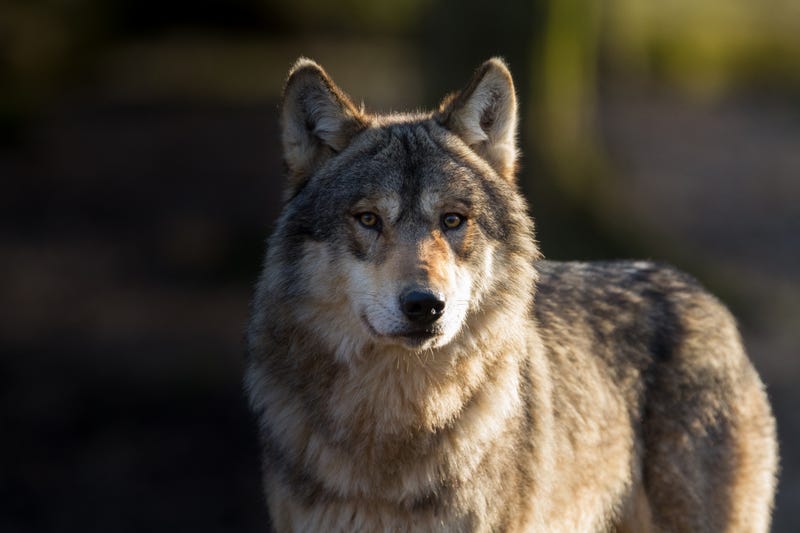
LANSING (WWJ) - The reintroduction of the Gray Wolf to the Upper Peninsula has been deemed a remarkable success as populations soared to over 700 animals — now a lawmaker in Lansing is eyeing the wolf's comeback below the bridge.
A resolution from state Rep. Greg Markkanen, R-Hancock, was advanced in the House on Wednesday, calling for the Department of Natural Resources to reestablish wolves in the Lower Peninsula by using a portion of the thriving population in the U.P.
“Public support for wolves has historically been high among Michigan’s Lower Peninsula residents,” Markkanen said in a release. “I’ve heard it from Lower Peninsula residents themselves – they often express envy in the UP’s privilege to live side-by-side with wolves."
Gray wolves in the state have been under federally protected under the Endangered Species Act since 1974. For almost 50 years, the wolf made its remarkable comeback leading to its removal from the Endangered Species list several times, most recently in 2021.
Since 2007, efforts to produce a viable, self-sustaining wolf population in the Upper Peninsula has paid off as over 700 animals are estimated to call the U.P. home. The current number of wolves far surpasses the original goal of 200 set by U.S. Fish and Wildlife Service and the Michigan Department of Natural Resources (DNR) Michigan Wolf Recovery and Management Plan, the statement added.
Gray wolves once existed all throughout Michigan, but was almost eradicated in the 1970s — there are no current, sustainable wolf populations in the Lower Peninsula.
The resolution, which is tie-barred to Markkanen’s House Bill 4102, states the "re-establishment of gray wolves in the Lower Peninsula could be achieved by translocating wolves from the recovered and established U.P. wolf population. Translocation has been used for decades as an effective method to re-establish rare and endangered species around the world.”
Markkanen said the Lower Peninsula is fit to provide ample resources to support the wolf, including thousands of acres of suitable habitat that is abundant with prey, such as deer, rodents, and other small animals.
"Additionally, introducing wolves into the Lower Peninsula’s predator base could possibly result in reducing the spread of fatal diseases that continue to spread across Lower Peninsula deer populations, such as chronic wasting disease and bovine tuberculosis," the statement reads.
HCR 2 went before the House Committee on Natural Resources, Environment, Tourism and Outdoor Recreation, along with HB 4102, which would implement the policy outlined in the resolution.
Markkanen said he encouraged Chair Rep. Pohutsky, D-Livonia, to take up both the resolution and bill in a timely manner.
